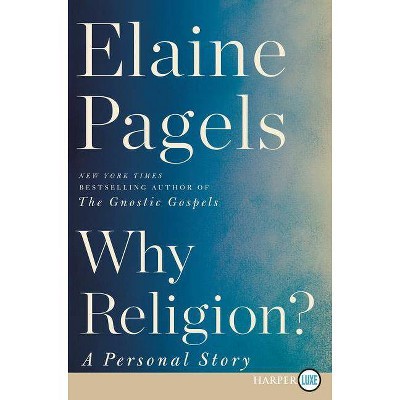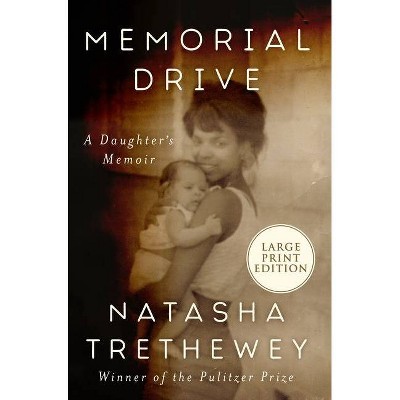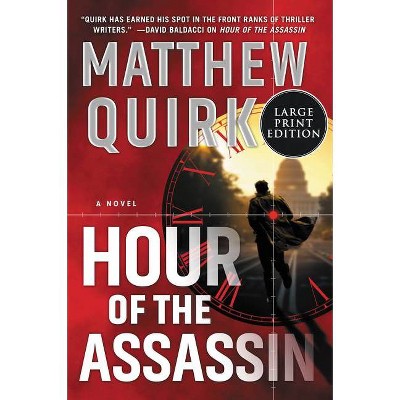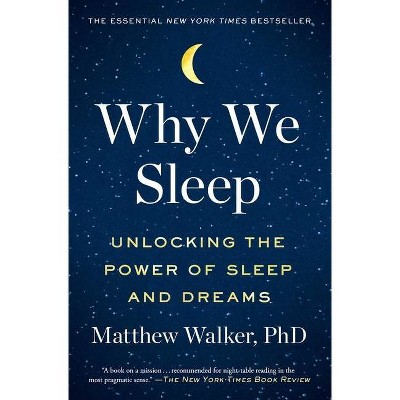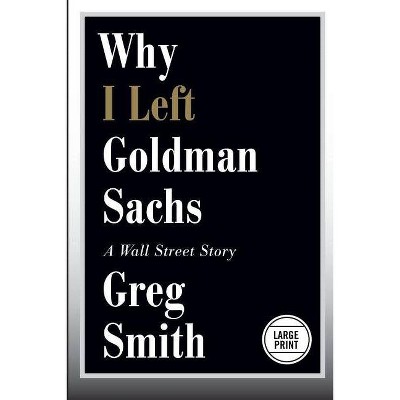Why We Drive - Large Print by Matthew B Crawford (Paperback)
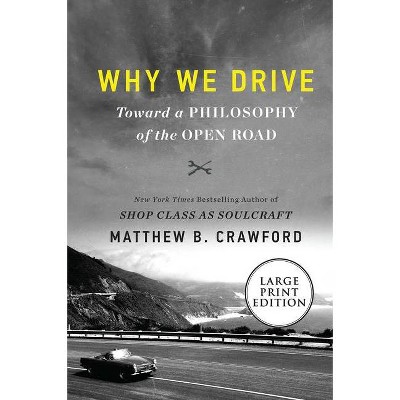
Similar Products
Products of same category from the store
AllProduct info
<p/><br></br><p><b> About the Book </b></p></br></br>Using driving as a window through which to view the broader changes wrought by technology on contemporary life, the author investigates the driver's seat as one of the few remaining domains skill, exploration, play -- and freedom.<p/><br></br><p><b> Book Synopsis </b></p></br></br><p><strong>A brilliant and defiant celebration of driving as a unique pathway of human freedom, by one of the most influential thinkers of our time (<em>Sunday Times</em>)</strong></p><p><strong><em>Why We Drive </em>weaves philosophers, thinkers, and scientific research with shade-tree mechanics and racers to defend our right to independence, making the case that freedom of motion is essential to who we are as a species. ... We hope you'll read it. --<em>Road & Track</em></strong></p><p>Once we were drivers, the open road alive with autonomy, adventure, danger, trust, and speed. Today we are as likely to be in the back seat of an Uber as behind the wheel ourselves. Tech giants are hurling us toward a shiny, happy "self-driving" future, selling utopia but equally keen to advertise to a captive audience strapped into another expensive device. Are we destined, then, to become passengers, not drivers? <em>Why We Drive</em> reveals that much more may be at stake than we might think.</p><p>Ten years ago, in the <em>New York Times</em>-bestselling <em>Shop Class as Soulcraft, </em> philosopher-mechanic Matthew B. Crawford--a University of Chicago PhD who owned his own motorcycle shop--made a revolutionary case for manual labor, one that ran headlong against the pretentions of white-collar office work. Now, using driving as a window through which to view the broader changes wrought by technology on all aspects of contemporary life, Crawford investigates the driver's seat as one of the few remaining domains of skill, exploration, play--and freedom. </p><p>Blending philosophy and hands-on storytelling, Crawford grounds the narrative in his own experience in the garage and behind the wheel, recounting his decade-long restoration of a vintage Volkswagen as well as his journeys to thriving automotive subcultures across the country. Crawford leads us on an irreverent but deeply considered inquiry into the power of faceless bureaucracies, the importance of questioning mindless rules, and the battle for democratic self-determination against the surveillance capitalists. A meditation on the competence of ordinary people, <em>Why We Drive </em>explores the genius of our everyday practices on the road, the rewards of "folk engineering," and the existential value of occasionally being scared shitless.</p><p>Witty and ingenious throughout, <em>Why We Drive </em>is a rebellious and daring celebration of the irrepressible human spirit.</p><p/><br></br><p><b> Review Quotes </b></p></br></br><br>Perfectly captures the basic instinct that drives the common gearhead, the need for movement.--David Booth, <em> Driving</em><br><br>"The subcultures Crawford depicts...stand for individual sovereignty against centralized power's erosions of it."--Times Literary Supplement (London)<br><br>A pleasure to read ... His thesis demands that he convey the pleasure of driving, and he's up to the task ... And he addresses some huge, fascinating issues: how people retain self-respect when computers are deskilling them, and sovereignty over their lives when computers are spying on them. Much of modern life raises these questions, but people's relationship with their cars perhaps best exemplifies them ... an enjoyable, scenic cruise round a fascinating landscape.<br/>--<strong><em>Sunday Times</em> (London)</strong><br><br>A thoughtful, entertaining and substantive work about the joys of driving--and about the attempts by various scolds to relegate that joy, and similar expressions of independence.--<strong><em>Wall Street Journal</em></strong><br><br>Crawford writes ecstatically of driving, evoking the sense of release and agency of flooring it out of the city as "a shady country road reels out ahead in rhythmic curves." ... But <em>Why We Drive </em>is about driving like<em> Moby-Dic</em><em>k</em> is about whaling. ... Crawford has something important to say.--<strong><em>San Francisco Chronicle</em></strong><br><br>Matthew Crawford's heartfelt riposte to a 'smart' future of driverless cars is persuasive and thought-provoking. ... A vivid and heartfelt manifesto against the drift of our world, against the loss of individual agency and the human pleasure of acquired skill and calculated risk.--<strong><em>The Guardian</em></strong><br><br>"Crawford artfully argues ... the case that freedom of motion is essential to who we are as a species. ... This book is a celebration of humanity and what we're capable of with the right tools. And what is a car but a finely evolved instrument? We hope you read it."--Road and Track<br><br>A biographical, philosophical inquiry that explores a fascinating paradox: the whole allure of driving is freedom, but it's also dangerous, so it has to be regulated. ... This is a lovely book that applies history, philosophy and literature to one obsessive subject.--Telegraph (UK)<br><br>A pleasure to read ... Addresses some huge, fascinating issues: how people retain self-respect when computers are deskilling them, and sovereignty over their lives when computers are spying on them. Much of modern life raises these questions, but people's relationship with their cars perhaps best exemplifies them ... An enjoyable, scenic cruise round a fascinating landscape.--<em>Sunday Times</em> (London)<br><br>Fascinating... Crawford skilfully takes us through the gears as he intelligently, and in a very American way, flies the flag for individualism over dour corporative determinism.--Mail on Sunday<br><br>A passionate appeal to the importance of the autonomous individual in the face of the dehumanizing pressure of automation. ... This book will have you pining for the freedom the open road.--<em>Kirkus Reviews</em><br><br>Absorbing. ... <em>Why We Driv</em>e is about a freedom that is being lost to the cynics of surveillance.. ... A defense of felt life against the intrusions of the technocrats. ... Plain funny.--New Statesman<br><br>One of the most original and mind-opening studies of practical philosophy to have appeared for many years.--John Gray, UnHerd<br>
Price History
Price Archive shows prices from various stores, lets you see history and find the cheapest. There is no actual sale on the website. For all support, inquiry and suggestion messages communication@pricearchive.us
